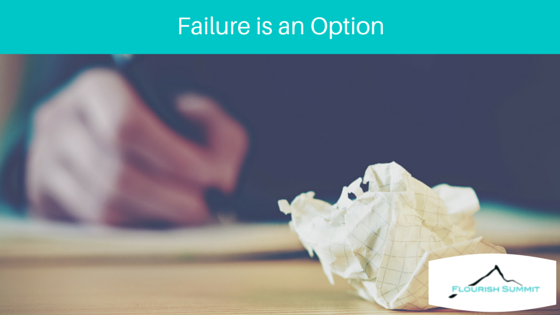We have been taught from a very early age that we have to succeed at everything, that failure is not an option. If this is the case, then how are we to learn anything? True education comes from making mistakes and then figuring out how to do it right.
Everything from our educational system to the media would have you believe that only losers make mistakes. Not true. Actually, making mistakes is one of the main ways we learn and improve – and it’s absolutely necessary for innovation.
Unfortunately, the last time our mistakes were accepted (much less appreciated) was when we were learning to walk. Back then, our parents didn’t flunk us when we took our first step and promptly crashed. We didn’t get fired for falling time after time while our bodies figured out how to do that walking thing. And we didn’t give up on ourselves and assume that if we couldn’t get it right the first time, walking just wasn’t for us!
But as soon as we got to school, every mistake got a big red X. Success was about having 100% correct answers with no deviations from what the teacher and text books claimed was the right answer. Then we took “aptitude tests” that told us to not even attempt a career that we were “wrong” for. In the job market, successful job candidates were those whose resumes showed that they “did everything right.” Once hired, if they continued to keep their noses clean and not mess up, they got the promotions. Conventional success seems to be about being mistake-free.
Unconventional thinkers embrace mistakes as the stepping stones to success. Thomas Edison is said to have tried thousands of versions of the light bulb that didn’t work before he discovered the one that did. The first product that Akio Morita developed for Sony, a company he co-founded, was a rice cooker that burned rice instead of cooking it. That mistake didn’t discourage him from creating other products and building a multi-billion dollar corporation.
Your failures are just as important, if not even more so, than your successes. Cherish these teaching points and grab onto them. Get excited about screwing up, about analyzing how this can serve as a lesson. Failure is an option.
